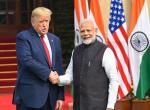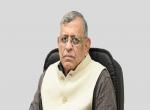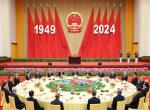Last decade, especially since the Arab Spring of 2010, has been quite momentous for the Saudi domestic, foreign and security policies. This has been further accentuated in the last five years and is greatly marked by tremendous pragmatism and realism so well-endowed in the “Vision 2030’ launched by Crown Prince and Prime Minister Mohammed bin Salman (MBS). Socio-economic reforms including the much-commented freedom for women from driving to going to Haj without an accompanying relative or for that matter even doing away with compulsory Hijab or Abaya and disbanding the much feared ‘Mutawa’- the morality police are indeed laudable and will have far reaching impact on Saudi Arabia’s quest for economic growth and development of the Kingdom.
In 2019, when I had visited Riyadh for a Think Tank discussion there were several Saudi female CEOs who did not hesitate to shake hands publicly as they wanted to be the equal partners in the progress of their country as envisaged by the MBS. It is not an easy road to traverse especially as the conservative elements and clergy are still pretty significant and not too happy with such radical reforms, especially as King Salman is the custodian of the two holy mosques and de facto leader of the Muslims. Moreover, Saudi Arabia is trying to change the way Islam is perceived especially by the West. More inclusive approaches for Abrahamic and other religions and cultures are being propagated. Moderate Islam with mutual respect and accommodation of all religions and cultures through interfaith dialogues has become an increasingly visible trait of the Kingdom’s outreach to the world. Recently, Dr. Mohammad Bin Abdulkarim Al-Issa, Secretary General of Muslim World League, and former Minister of Justice Saudi Arabia, visited India (July) for enhancing interfaith dialogue, countering extremist ideologies, promoting global peace, and deepening the partnership between India and Saudi Arabia. He also conveyed the message of universal brotherhood and underlined the need for mutual respect and accommodation for and among all religions.
Ramayana and Mahabharata are being taught in Saudi schools and practice of Yoga has become a common sight, which was unthinkable a few years ago. Moreover, Saudi Arabia had supported the designation of June 21 as International Day of Yoga at the UN in 2015 and recognized it as sport. Religious diplomacy in addition to Haj has added a new heft to Saudi foreign policy. It is also adopting the Sports diplomacy as an integral part of its soft power projection with projects like NEOM and bid to host tournaments, major soccer players and ownership of powerful teams at a regional and global level.
Amidst the geo political, geo economic and geo religious contestations, Saudi Arabia mainly followed the quest for regional stability, security, a certain religious and Middle Eastern leadership including support to Palestinian cause, smooth flow of crude and energy, petro dollars as an instrument of foreign policy and ‘Advantage Saudi’ for economic development of the Kingdom and its partners. In 1970s, it used its oil power as an instrument of foreign policy and later ‘Oil for Security’ with the USA and the West which helped it maintain superiority until the advent of Shia Islamic conservative regime of Ayatollah Khomeini in (1979) and emergence of Iran as a counter balance. Before that both were in the US camp. Later during the post Arab Spring challenges while it was able to contain the threats of regime change in the Kingdom and GCC especially Bahrain it did weaponise its foreign policy like UAE and Qatar at the behest of the West especially in Libya and Syria. In order to contain spread of Iran backed Houthi power and extremism in Yemen and to convey a message to Obama Administration, which was supporting normalization with Iran especially through JCPOA (Nuclear deal) that was perceived as direct threat to Kingdom’s supremacy MBS authorized attacks leading to worst humanitarian crisis. Invasion of Yemen in 2015 with so called combined Sunni forces followed. It only exposed its limitations and vulnerabilities as it turned into an infructuous ‘Forever War’ from which Riyadh wanted to extricate itself at the earliest but for which Iran needed to be on board.
Riyadh also felt that the ‘Carter Doctrine’ of a security umbrella was disappearing fast when Trump refused to take decisive action against their Iranian backers in the wake of Houthi drone and missile attacks on Saudi Aramco’s Oil installations at Abqaiq and Khurais (2019) piercing the Patriot systems. Riyadh happened to be the biggest importer of sophisticated US weapons and armaments. High level visits only resulted in purchase of more arms worth billions of dollars. However, a disenchanted Saudi leadership also realized, that USA’s priorities to keep the security umbrella over it, and the Middle East with withdrawal from Afghanistan and focusing to contain China in the Indo Pacific, would make it even more unreliable. Moreover, USA has emerged a major competitor in the hydrocarbons as its dependence on the Saudi and Middle eastern oil decreased despite the challenges caused by the Russia-Ukraine war when Europeans again sought greater access to the Gulf oil and gas.
Yet, for Riyadh the OPEC and OPEC+ with Russia became more important for the security and the stability of the markets and prices much to the chagrin of Biden Administration. Biden had as such started on the wrong foot by calling Saudi as a “Pariah state’ and referred to MBS in disparaging terms with regard to ‘Khashoggi murder’ thereby hurting the tribal sensitivities. This was reflected in the cold shouldering of Biden during his visit to Riyadh. But MBS is following a more pragmatic policy while smartly hedging his bets and avoiding to be baited yet again. West would have to work much more sincerely on the Saudis especially if they are seeking the expansion of Abraham Accords and normalization of Saudi ties with Israel, which in turn is predicated on the acceptable resolution of the Palestinian issue even though a certain fatigue seems to have set in the Arab world.
Meanwhile, Saudis have decided to also look for more viable, equitable and mutually beneficial options in Asia especially with China and India which are their biggest markets for oil and gas and for profitable investments. Saudi Arabia and several other countries in the region are actively pursuing an ‘Act East ‘policy. Saudi Arabia is a strategic partner of both India and China. However, with Beijing they are also commiserating on the Belt and Road Initiative (BRI) and Maritime Silk Road initiatives including sale and settling of oil proceeds in the Yuan (Renminbi)-Rial mechanism. BRI has been dovetailed with Saudi Vision 2030 plan during the recent visit of President Xi Jinping (December 2022) that was often compared with high pomp and show as against a tepid one of Biden. Defence and security partnership is expanding as China follows its 1+2+3 policy post the Arab Strategy paper of 2016. Uyghurs issue is passed off as an internal problem and equated mostly with extremism while China doesn’t pass any value judgments on the Saudi leadership and governance. Trade and investments and deeper infrastructural collaboration have acquired greater salience. However, Riyadh may also be hedging to allow US course correction as until now it is not convinced that China or any other power could replace Uncle Sam as the arbiter of security in the region. Meanwhile, they are hoping for Chinese influence over Tehran to keep it committed to the dotted line of the trilateral agreement signed in Beijing and to diffuse the Houthi threats.
Therefore, it is imperative that a complete turnaround in the regional dynamic is engineered through rapprochement. Riyadh has adroitly moved in this direction by minimizing internal fissures and undertones of conflict that could spill into a major regional conflagration. Firstly at the Al Ula GCC Summit, MBS called off the four year old blockade of Qatar (2017-21) even though all demands were still not met and Doha had begun to play and punch internationally above its weight. Their role in US-Taliban Doha Accord and during US’s exit from Afghanistan upgraded them to the level of a non-NATO ally. Saudi Arabia has also started playing a mediatory role in Sudan, Lebanon and normalization with Assad regime in Syria when they hosted him in Jeddah at the recent Arab League Summit. Likewise, they have normalized ties with Turkey with some implicit understanding on political Islam and Muslim Brotherhood as well as in Iraq, Syria, Libya and elsewhere thereby removing distractions. It also played an active role in prisoner exchanges between US and Russia and Russia and Ukraine during the currency of the Eurasian war. Only last month (August 5) it hosted a meeting in Jeddah of major partners and players including NSAs from India, China and the US to discuss the end of Russia-Ukraine conflict, although keeping Moscow out, to present some credible way forward.
To top it all, it was the recent rapprochement and diplomatic and high-level exchanges with arch rival Iran which had been initiated by Baghdad and Muscat and sealed by Beijing. So far it is going on smoothly as reduced tensions and modus vivendi serve them domestically, bilaterally and regionally rather well. Even though several ideological and diplomatic challenges remain the effort will have a salutary impact on the regional dynamic which as such is rife with several hotspots. Both Iran and Saudi Arabia have also joined/affiliated Asia and Sino centric BRICS and SCO (Shanghai Cooperation Organisation) which indeed will have its own repercussions going forward as the global transitional order stabilizes most likely marked by more invidious Cold War 2.0 matrix. But an interesting flux of $10000 Iranian carpets with a picture of Crown Prince Mohammed bin Salman at the ongoing 30th Iranian International Handmade Carpets Fair tells an assuring story at the grass root level as President Ebrahim Raisi has been invited to visit Riyadh and special arrangements for Iranian Haj pilgrims were made.
Next week Crown Prince Salman will be in New Delhi for the G20 Summit. India and Saudi Arabia have been working very closely as real strategic partners since Saudi Presidency of G20. MBS will also continue on his State visit on September 11, after the Summit. Prime Minister Modi has a great personal relationship with MBS and bilateral relationship has acquired a much greater heft and confidence. Most recently another strategic connectivity initiative with IUSU (India, UAE, Saudi Arabia and USA) has been launched. Not only Riyadh is a major energy security partner for India, it has committed to invest over $ 100 bn in Indian infra-opportunity. It provides over 18% of our crude requirements and has emerged our 4th largest trading partner and 2nd largest host of Indians in the region. The high-level Strategic Partnership Council set up during PM Modi’s visit to Riyadh keeps monitoring the progress on various projects. Moreover, Riyadh has displayed immense sensitivity and understanding to India’s concerns regarding Pak based cross border terrorism, extradition of economic and other offenders and on key developments from Pulwama to Balakot to revocation of Art 370 or even at the OIC (Organisation of Islamic Cooperation), even though it wishes to avoid taking sides directly in the adversarial relationship that China and Pakistan have with India.
Shift in Saudi policy of confrontation to cohabitation is driven by pragmatism and strategic autonomy as well as focus on ‘Saudi First ‘imperative driven to make the Kingdom a highly developed and prosperous, technologically advanced and non-fossil fuel-based economy for which regional peace and stability are paramount.
(The paper is the author’s individual scholastic articulation. The author certifies that the article/paper is original in content, unpublished and it has not been submitted for publication/web upload elsewhere, and that the facts and figures quoted are duly referenced, as needed, and are believed to be correct). (The paper does not necessarily represent the organisational stance... More >>
Image Source: https://images.livemint.com/img/2023/03/11/600x338/IRAN-SAUDI-DIPLOMACY-CHINA-6_1678498242248_1678498242248_1678498272882_1678498272882.JPG










Post new comment